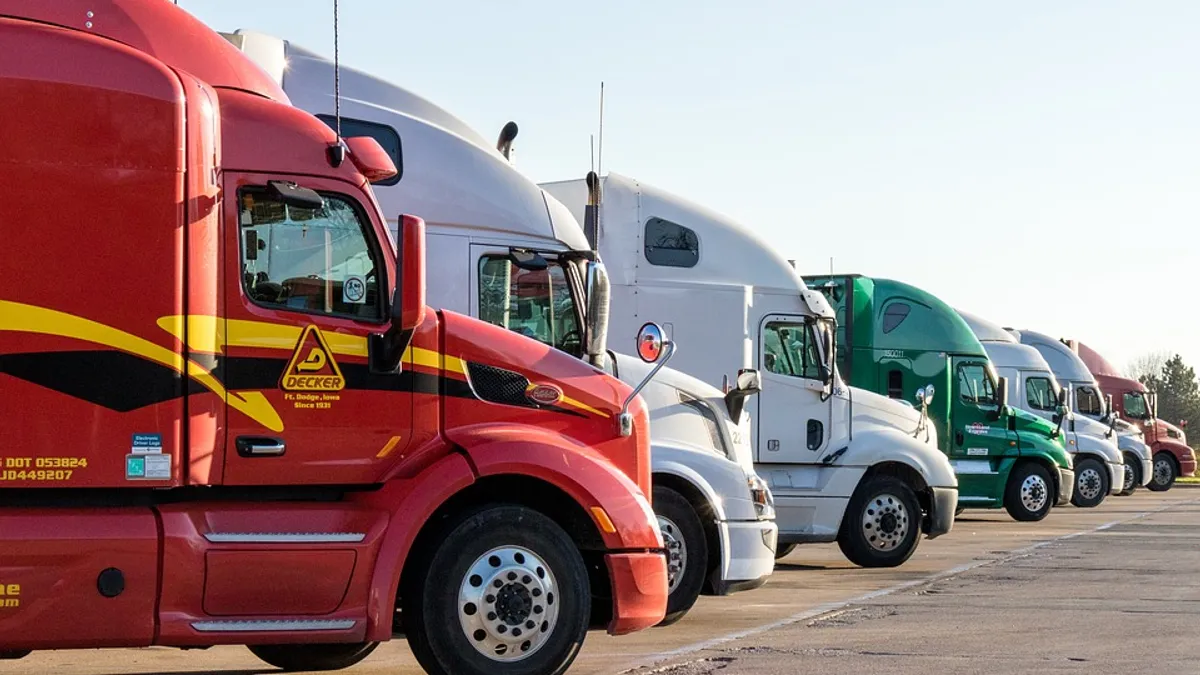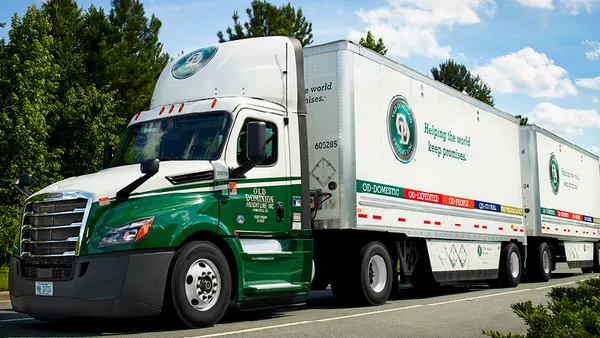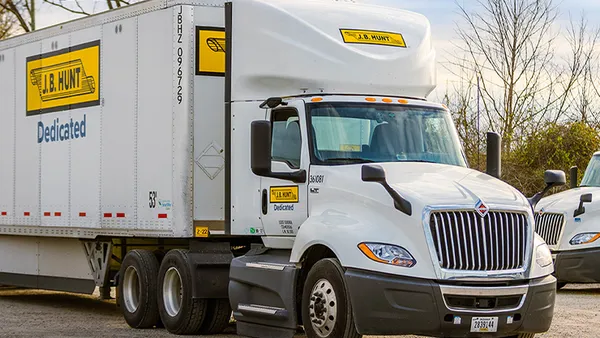Dive Brief:
- Executives for Landstar Systems and YRC Worldwide placed blame on the sluggish manufacturing sector for dragging down trucking volumes when talking on earnings calls over the past week.
- "Throughout the second half of 2019 ... weaker economic conditions, especially in the US manufacturing sector led the seasonal softness in Landstar’s truckload volumes," Landstar CEO Jim Gattoni said on the company's earnings call last week. The trucking industry needs a boost from the broader economy, specifically from manufacturing, YRC CFO Jamie Pierson said Tuesday.
- Lack of demand means YRC is keeping its employee headcount "lean" until volume is normal or "less bad," CEO Darren Hawkins said on the call.
Dive Insight:
Concerns from trucking companies track with the Institute for Supply Management's purchasing manager's index, which showed the sector shrinking from August 2019 until last December.
The most recent reading for January 2020 indicated growth for the first time since last July, which is a positive indicator for trucking companies.
Shippers have benefited from the low prices in the trucking market that came around due to slack demand.
"The rate paid to truck brokerage carriers in the 2019 fourth quarter was 44 basis points lower than the rate paid in the 2018 fourth quarter," Landstar CFO Kevin Stout said.
Carriers see the sands shifting in their favor, but probably not until the second half of the year.
"Based on recent January trends, we expect truck loadings in the 2020 first quarter to be lower than the 2019 first quarter in a mid-single-digit percentage range," Gattoni said. The first quarter of 2019 was the company's best quarter last year. It quickly felt the impact of a soft freight market in subsequent quarters as low rates impacted the company's revenue.
"As it relates to the full year, I expect the operating environment in the first half of 2020 to continue to be challenging with continued softness in US manufacturing and readily available truck capacity," he said.
Healthier trucking companies could benefit, though, as the lack of demand combines with hefty insurance costs to force some capacity out of the market either through failures or making companies cut equipment. If this happens it could bring supply more in line with demand and make procuring freight more expensive for shippers.
C.H. Robinson's CEO called the market "extreme, if not unprecedented" in the company's earnings call last month and said the company is looking to invest in areas like warehousing and technology so it's not completely reliant on trucking volume.
If trucking companies are relying on a manufacturing uptick then the outbreak of the coronavirus has added a wrinkle to that equation. It has resulted in factories being shut down for longer than expected following the Chinese Lunar New Year, meaning some companies are left without vital suppliers or entire operations.
"Although it is difficult to predict the economic environment in the back half of 2020, our year-over-year financial comparisons begin to ease starting with the second quarter," Gattoni said.














